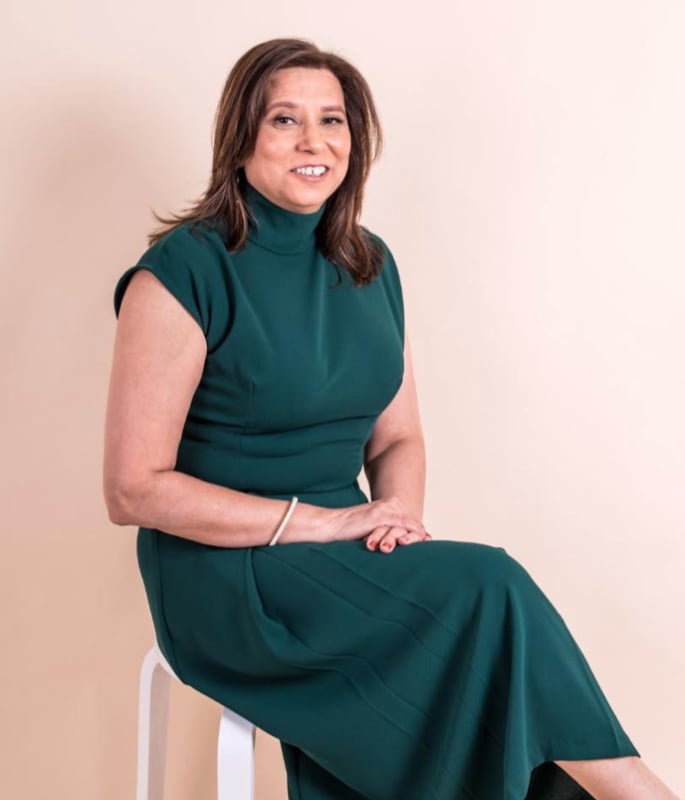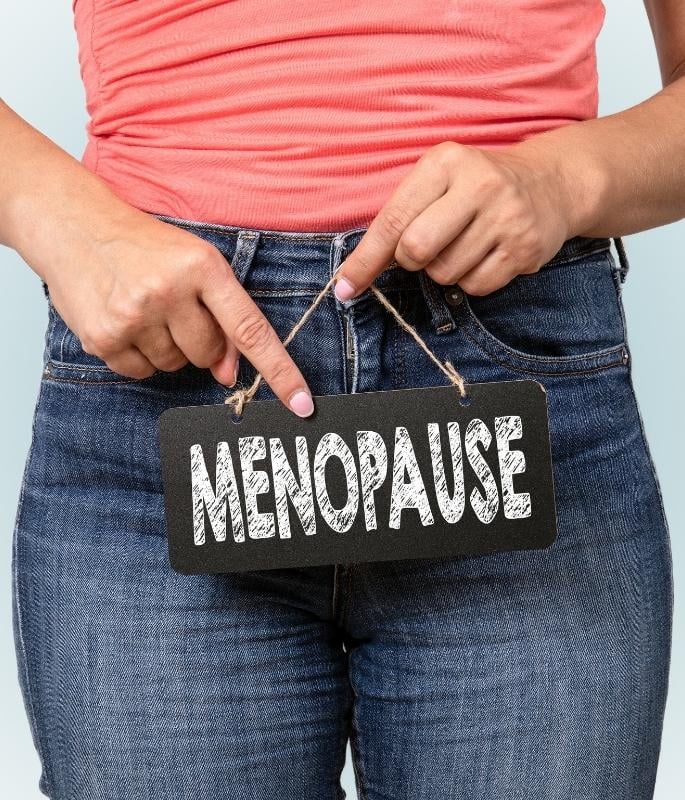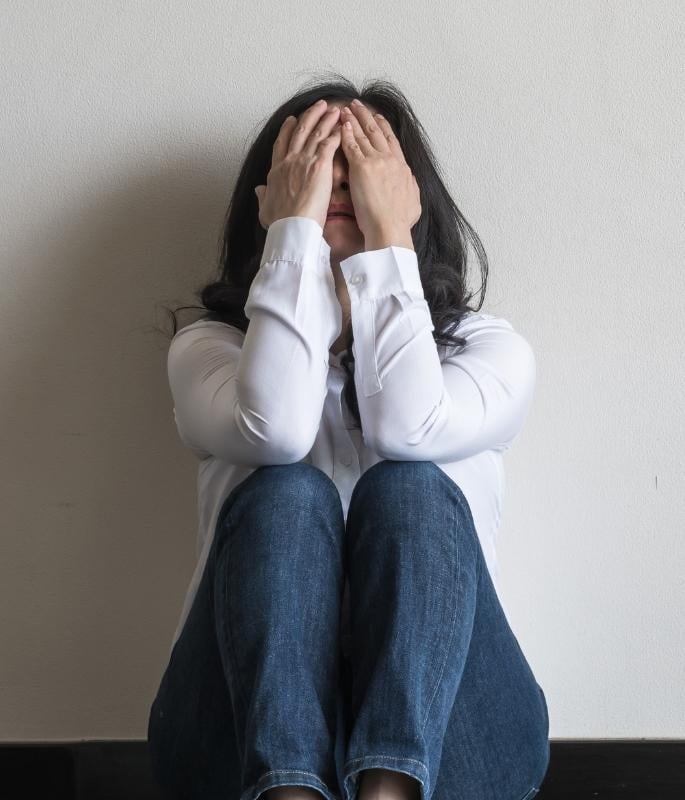Madhu Kapoor on M for Menopause & Transition Taboo
Menopause is not one size that fits all.
For years women have silently or unknowingly coped with the symptoms of menopause, with little or no support.
Some have felt ashamed to talk about their menopause experience whereas others think that menopause is not a worthy conversation as their experience has not been debilitating.
Additionally, many women experiencing early menopause symptoms often feel worried and confused by the symptoms they are having, which can range from brain fog to increased anxiety.
Simply put, women just don’t feel themselves and don’t know why.
Above all else, menopause is a natural part of a woman’s life but remains a taboo subject.
The question remains – why are women not talking about menopause? Is it because they have felt embarrassed, ashamed or even weak by showing others how they are not coping and it’s best to suffer in silence?
Or is it the community they live in that women’s health is deemed as not being important?
Menopause is not one size that fits all and it should not be assumed that a particular type of woman will go through it.
This is why menopause needs to be spoken about, people need to be made aware to not only help themselves but able to support their loved ones.
In an exclusive chat with DESIblitz, the founder of M for Menopause, Madhu Kapoor dispels the common myths and misconceptions surrounding the transition and provides insight into her services.
Can you tell us a bit about yourself?

 My name is Madhu Kapoor, and I am the founder of M for Menopause which aims to provide information on menopause in an accessible way for all and support individuals, families and employers.
My name is Madhu Kapoor, and I am the founder of M for Menopause which aims to provide information on menopause in an accessible way for all and support individuals, families and employers.
Before I get into the nitty-gritty of my menopause journey, I am a 56-year-old British Indian, born and raised in Newcastle Upon Tyne, now living in North West London.
I am married to my husband, Raj, for 30 years and have 2 daughters, Alisha, 28 and Sumona, 23 years old.
From a professional perspective, I worked for 23 years in a government department with various experiences in frontline operations, HR and my last years as a Recruitment specialist.
I was a highly motivated, loyal civil servant who thrived in my job until I slowly began to morph into someone who I did not recognise.
I would be sitting in meetings where I could no longer retain any information crippling in anxiety, I needed reassurance from others.
At the time, I had no idea this was a result of menopausal symptoms – I knew nothing about menopause and the huge impact it can have on a woman’s life.
As my symptoms continued to deteriorate and support continued to be absent at work, I abruptly resigned in 2016.
However, it is certainly not all bleak as where I am today is a result of all the hurdles I faced over these years.
If I continued to feel sorry for myself, dwell in a dark place, and constantly look in the rear mirror this would have prevented me from moving on and doing what I do today.
Perimenopause affected my health physically and psychologically.
I began to doubt my ability, became lethargic, I lacked confidence, I lost my way and did not know what value I brought to my family or my work.
Getting to where I am today was a lonely battle, fighting for help to get that right support, trying to get impartial medical advice and having to re-train my mind by adopting techniques to be as close to the person I was pre-menopause.
Eventually, I got myself in a better position. However, I am certainly not, and will never be the same person I was before menopause, and that’s okay.
I began to change my outlook and dig deeper into my experience.
Despite being surrounded by females all my life I found a huge lack of exposure or discussion to many female-health topics, particularly menopause.
This lack of openness certainly did not help me with my journey. I felt like I was going crazy.
This is why I decided to write a book called ‘It’s Our Menopause’ for working women so that none experiences the same journey I did.
It is to ensure women can balance their health and career and help them in all aspects of their lives.
I realised that I am not just a woman, but a South Asian woman, with traditional values, embedded and this could have impacted my menopause journey.
I am using the book as a platform as I want to represent the diversity of women and especially being Asian, where women can relate so that our voices are heard.
What is M for Menopause?

 I founded M for Menopause with the ambition to ensure that no person goes through a similar journey I experienced with my menopause.
I founded M for Menopause with the ambition to ensure that no person goes through a similar journey I experienced with my menopause.
I have been surrounded by females my entire life from all angles, be it within my family, friends or colleagues.
Despite this, conversations around menopause never surfaced, and as a result, I had no idea what profound impact menopause could have on a woman’s life.
I had no idea what to expect and I was certainly naive.
As a result of my journey both at home and at work combined with the inherent lack of conversation across numerous communities M for Menopause aims to tackle this through:
- Encouraging open conversations about menopause and increasing knowledge through the media, customised workshops and pieces of writing;
- Helping employers create an appropriate culture to support their employees when they are navigating menopause, and help them devise solutions to support women on the ground;
- Holding workshops in communities and supporting women either one-to-one or group-based to consider informed choices available and be prepared in advance. I provide support for families, friends or couples in these formats;
- Raising awareness, listening to communities and improving access to support across different communities and for underrepresented groups.
How do you help?

 Menopause is not just a woman’s issue. It is for the whole of society, each individual, to help ensure that everyone who goes through menopause has the right support.
Menopause is not just a woman’s issue. It is for the whole of society, each individual, to help ensure that everyone who goes through menopause has the right support.
Menopause has to be understood across all communities, and support tailored for communities.
Yet support varies across the UK, and it can be particularly hard for those in underrepresented groups to get the right support.
I aim to tailor engagement with these communities in mind to ensure that there are conversations, awareness and support available within all communities and across UK society, regardless of one’s race, age, sexuality or gender orientation.
- For women, I provide 1-to-1 support to guide them and devise strategies for each stage of their menopause journey, including preparing for medical appointments and helping them get the best support they can in their workplace and at home.
- For partners, families, friends and individuals, I hold workshops to increase awareness and to help them understand how best they can support those around them.
- For employers, I have a methodology to develop bespoke advice and guidance for the organisation on changes required to best support their employees through menopause and retain a loyal and committed workforce.
What do I need to know about menopause?

 First of all, everyone needs to know about menopause, regardless of age, ethnicity, and gender, and it’s time for the subject to be taken seriously!
First of all, everyone needs to know about menopause, regardless of age, ethnicity, and gender, and it’s time for the subject to be taken seriously!
Menopause occurs when the sex reproductive organs are coming to retirement and the production of the hormones oestrogen and progesterone begins to fluctuate.
This is when peri-menopause symptoms occur (there are at least 34 of these!).
I use the word retirement almost sarcastically as it reflects being older, and fits the common myth that menopause happens only to ‘old’ people.
However, on average, menopause begins between 45-55 years of age. At this age, many females feel this is their time!
Children may be older or responsibilities may have changed, and it feels like a time to build on personal relationships, and careers, and to enjoy life.
Unfortunately for some, this may become extremely difficult due to the severity of their symptoms.
During menopause, there is no single simple sign to let you and those close to you know that the hormones are exiting your body – so be prepared for taking off!
There is no way of telling what type of journey one may have.
Some may sail through menopause and others may face a turbulent journey, so all should be prepared for this journey and the potential disturbance and destruction along the way.
How can I use the M for Menopause Symptom Tracker?

 Before I delve straight into how to use the menopause symptom tracker, I would like to mention its aim and benefits.
Before I delve straight into how to use the menopause symptom tracker, I would like to mention its aim and benefits.
To sum up, it is to assist women to provide clarity on the symptoms they are experiencing and spot patterns.
Given there are over 34 symptoms linked to menopause, keeping track mentally can become extremely overwhelming and further take a toll on your mental health.
This is why I felt the need to develop the tracker so it can help in many ways: consciously noticing what’s happening to your mind and body, identifying common symptoms you are experiencing, and spotting potential triggers.
This will help guide conversations when you need to seek help, attend medical appointments or approach your manager at work.
The symptoms tracker is to be used over 4 weeks. The symptoms have been categorised into 4 categories:
- Most common
- Physical and less common
- Physical Pain and discomfort
- Psychological
There are no set rules with this, make it work for you.
I would advise each symptom to be rated daily on a scale of 1 to 4, 1 being “Not a problem” and 4 being “Concerning”.
Alternatively, you can tick symptoms you are experiencing if you feel this saves time.
As you begin to populate the tracker, you may begin to see patterns or clusters within certain categories or points in time.
This can then be used to help you when attending a 10-minute medical appointment, offering better clarity, and structure to your conversation with the GP with all the evidence in front of them.
It will also help those working to manage conversations with your manager, team leads or HR where you can collaboratively reflect on necessary changes at work to help alleviate their symptoms.
What are the most common misconceptions about menopause?

 Menopause is a natural process that women will face.
Menopause is a natural process that women will face.
During this process, the reproductive system starts to decline and hormones fluctuate which means menopause can differ from woman to woman.
Despite an increase in coverage in media about menopause, there are still many myths and misconceptions about menopause which need to be highlighted.
Myth 1 – Menopause is only for elderly women
This is not true the average age of menopause is 51.
As the ovaries slowly decline and hormone imbalance can occur over the years this is known as the perimenopause stage, which can occur before the age of 50.
There are also several different terms it’s important to understand:
- Perimenopause is the duration of time from when you first start experiencing menopausal symptoms or the menstrual cycle changes. It tends to occur between ages 45-55 however can occur at any age and last from anything a day to 12 years plus.
- Menopause is the stage when a person has not had a natural period for 12 consecutive months.
- Early menopause is menopause (no period for 12 consecutive months) which occurs between the ages of 40 – 44.
- Premature menopause/Premature Ovarian Insufficiency (POI) is menopause that occurs before the average age of menopause and can occur in your teen, 20s and 30s. Premature menopause can occur naturally as a result of genetics, autoimmune disorders, radiotherapy/chemotherapy or because ovaries are surgically removed.
- Postmenopause refers to the time after menopause. It’s important to note, that although your period ceases, menopausal symptoms can persist and last for years, it just depends on the individual. The symptoms can be less severe than in the perimenopause stage but there may be good days or other days symptoms flare up.
Myth 2 – HRT causes breast cancer and is not an option I should consider
The main reason women stay away from HRT is because of the fear of cancer.
However, this is an unfairly grounded misconception which stems from a 2002 Women’s Health Initiative study that has many flaws, or at least conditions that need to be considered.
Firstly, the aim of the study was not to verify HRT but to check if it had the same heart benefits for older women.
Instead, the public took these findings to be extrapolated to women of all ages despite 66% of women in the study being 60-70 years old, whereas the common age to take HRT is from mid-40s-mid 50s.
Additionally, a different type of HRT was used in the study to what is prescribed today: a form of oestrogen and progesterone which no longer is prescribed because there are more effective and safer forms out there today!
There have been many refreshed studies since which show there are clear benefits of HRT relative to risks.
There are many key factors to be considered when choosing HRT, so do speak with your GP and refer to the NICE guidelines to consider the treatment options right for you.
Myth 3 – Your period stopping is the only sign to look out for
This is not true. Although menopause is ultimately defined by your period stopping for 12 consecutive months.
There are over 33 other symptoms which women can experience before, during and after this point in time. But I believe there could be more than 34 symptoms.
It’s important to remember you can still have your period and experience other menopause symptoms.
Typically, an irregular period combined with these symptoms is a sign of being perimenopausal.
For those who have always been susceptible to irregular periods or take contraceptive pills, perimenopause can be harder to identify.
It is best to consider other symptoms linked to perimenopause such as low moods, lack of concentration, vaginal dryness, irritability, insomnia and skin changes.
Menopause is a topic that needs to be addressed to ensure everyone is aware and prepared to not only help themselves but also their loved ones in times of need.
Symptoms can range from many physical and mental symptoms including insomnia and brain fog to increased anxiety and mood swings the list is limitless.
If women are not aware of the symptoms, they will be forced to endure and battle through a process that can be impairing.
In society, a lot needs to be done especially and this is what Madhu Kapoor achieves and actively ensures the subject is spoken about.
Do call her and reach out via email (mformenopause@gmail.com) to find out about her services, arrange a one-to-one call or organise a workshop to start the much-needed conversation in our communities.